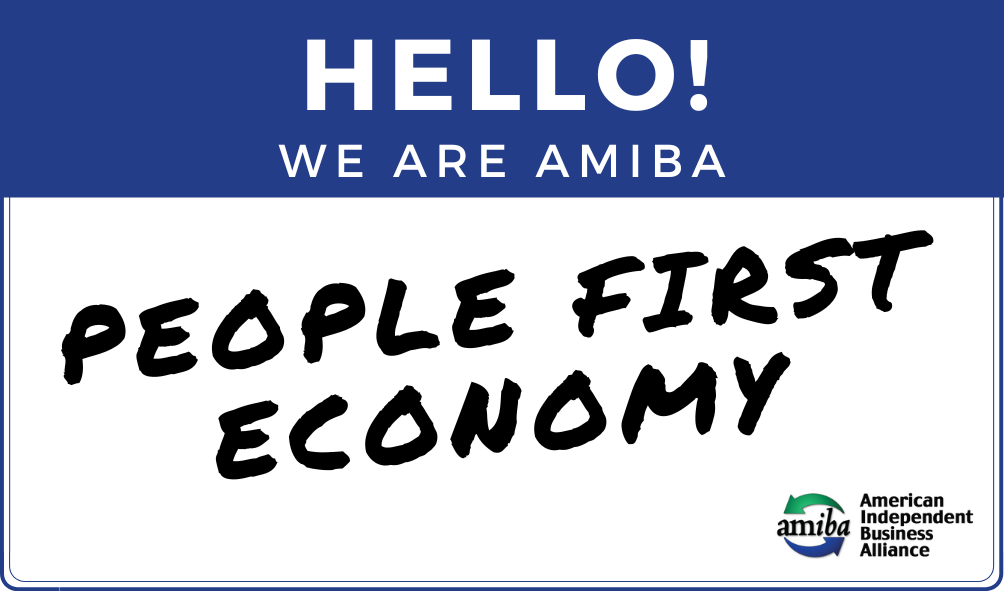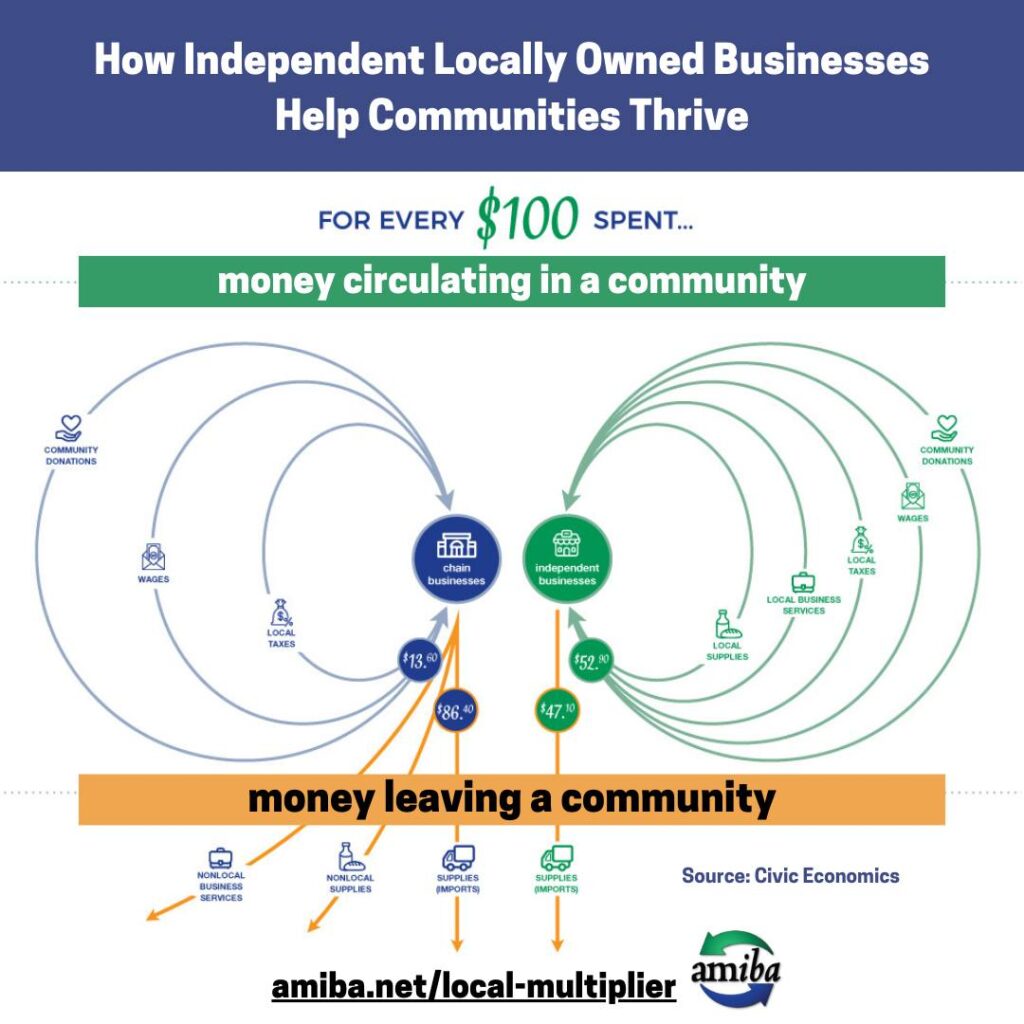In 2003, seven businesses in Grand Rapids, Michigan, came together to grow an economy with one important element at its center: people. It didn’t take long for more businesses to take notice, eventually expanding the network to the lakeshore and beyond. Known as Local First West Michigan, the initiative is one branch beneath a non-profit umbrella called People First Economy.

“We lead the development of an economy grounded in local ownership that meets the basic needs of people, builds local wealth and social capital, functions in harmony with our ecosystem, and encourages joyful community.”
-Kathleen Roark, Director of Engagement, People First Economy
One of the organization’s strong beliefs is that place and sustainability are integral to each other. As part of this rich, place-based approach, Local First remains tied primarily to West Michigan.
However, in recent years, it became clear that a mechanism to incorporate businesses from across the state was needed. That’s when Good for Michigan launched in 2017 and became the second arm of People First Economy. It’s an initiative that brings together and recognizes companies positively impacting their employees, their community, and the environment.
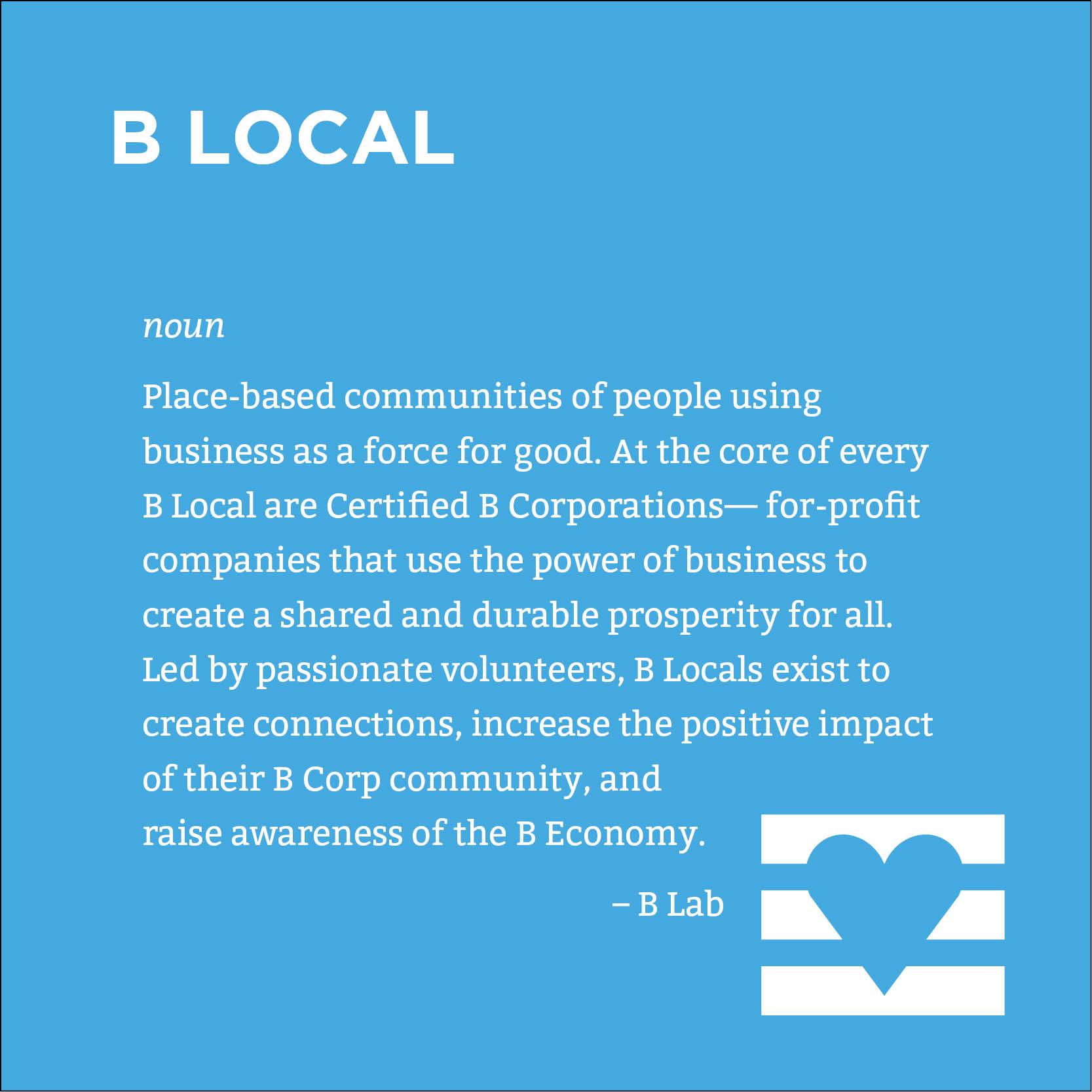
Good For Michigan provides resources and best practices for sustainability and social good and is proud to be the state’s B Local. B Locals are place-based communities of people who use business as a force for good.
Part of Good For Michigan’s work involves supporting certified B Corps, a specialized designation for companies that meet the highest triple bottom line standards: people, planet, and profit.
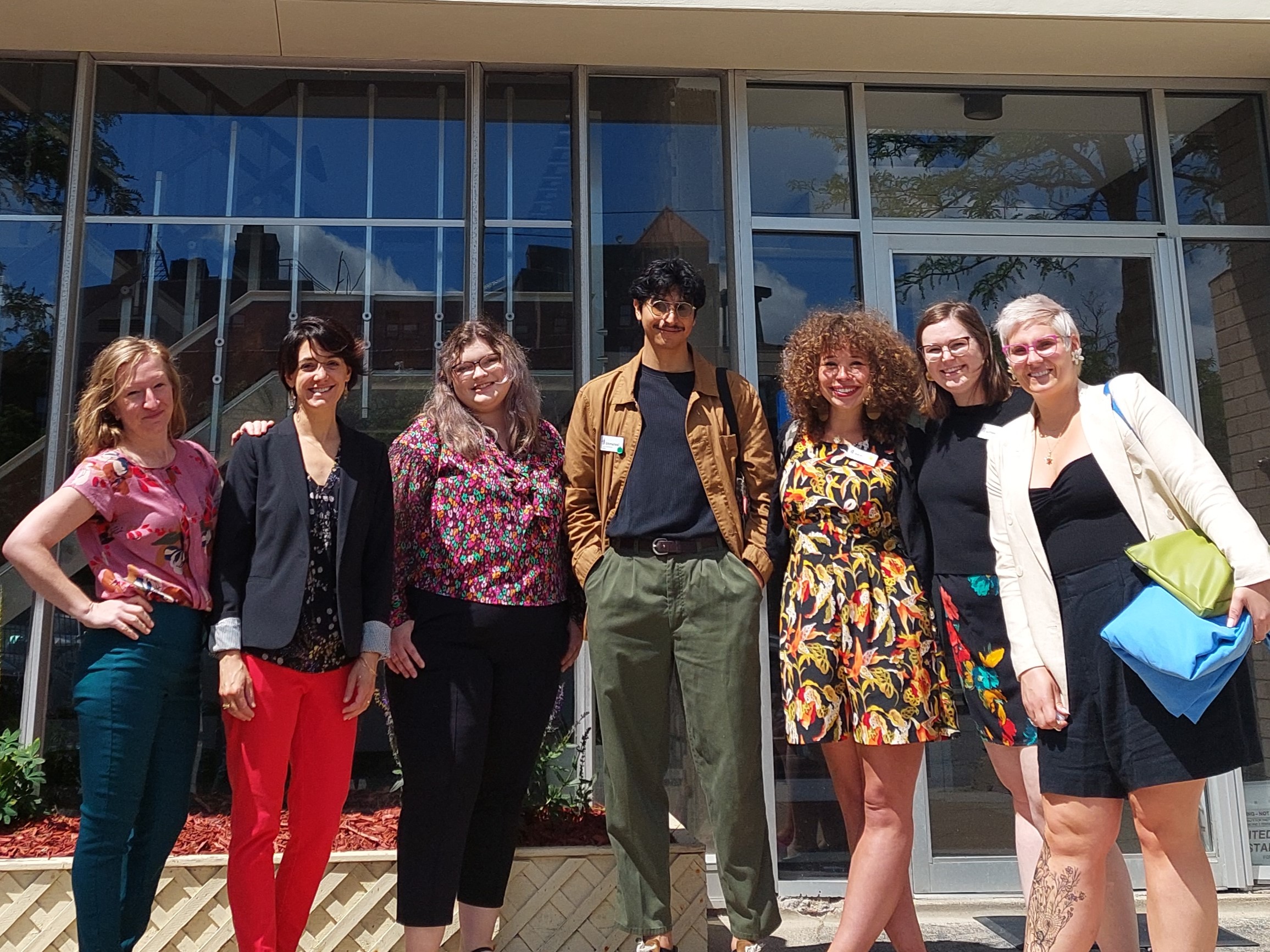 Good For Michigan also helps identify and evaluate local successes and opportunities for improvement, using assessments like the B Impact Assessment (BIA) and SDG (Sustainable Development Goals) Action Manager. They use these tools individually, in curriculum-based cohorts, and host hackathons, during which organizations come together for intense collaboration to create a roadmap for the future.
Good For Michigan also helps identify and evaluate local successes and opportunities for improvement, using assessments like the B Impact Assessment (BIA) and SDG (Sustainable Development Goals) Action Manager. They use these tools individually, in curriculum-based cohorts, and host hackathons, during which organizations come together for intense collaboration to create a roadmap for the future.
In some cases, these conversations have illuminated a clear need for policy development or change, which led to People First Economy’s most recent pilot program, the Impact Project. Through this effort, members work together to establish a credible voice and build civic engagement muscles to affect policy change that puts people at the heart of local economies.
While having various branches allows People First Economy to remain flexible and take on different roles, the challenge is always to map, understand, and respond to each community’s unique advantages and needs.
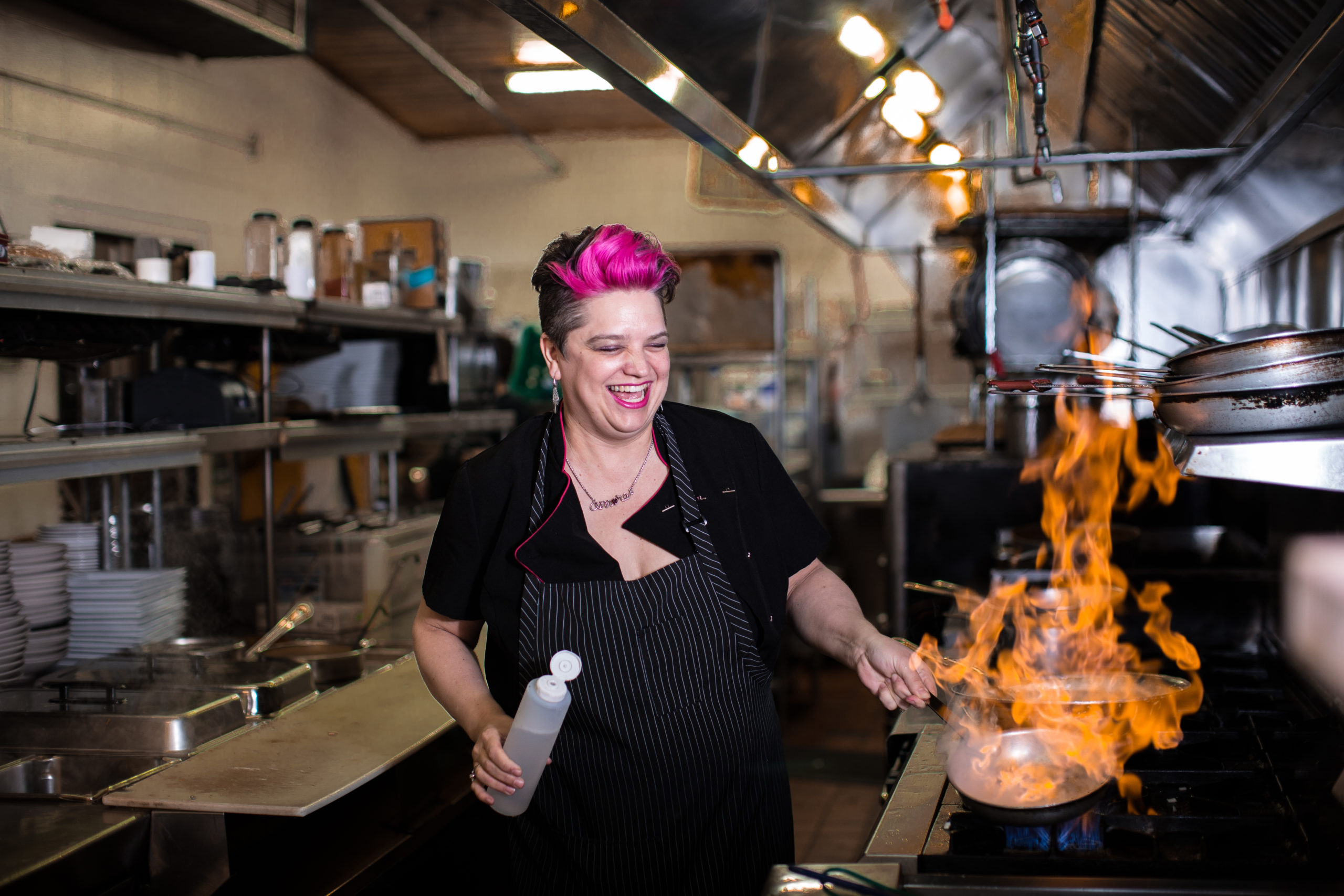 Communities often have their own economic development projects in place. The aim is to elevate what’s happening by building trust and relationships. This entails bringing all voices into the conversation, especially around diversity and inclusion, a discussion that shifts based on place. Every community has its own goals, language, and concerns. Some may not fully see the business case for having these conversations or need extra support to host them.
Communities often have their own economic development projects in place. The aim is to elevate what’s happening by building trust and relationships. This entails bringing all voices into the conversation, especially around diversity and inclusion, a discussion that shifts based on place. Every community has its own goals, language, and concerns. Some may not fully see the business case for having these conversations or need extra support to host them.
People First Economy and its programs call on common language and strategies from B Lab (the non-profit network that certifies B Corps and works to transform the global economy). It’s a framework known as JEDI, Justice, Equity, Diversity, and Inclusion, with tools to “build teams, cultivate leaders, and make business a force for good.”
People First Economy readily acknowledges the importance of these ongoing conversations, not only for members but also for the organization itself. In the last twenty-plus years, the non-profit has catalyzed both wonderful and imperfect economic and social changes.
For instance, in some cases, uplifting businesses has led to gentrification and, ultimately, the displacement of existing community members. Looking at impacts honestly and sharing with transparency will play a role in how People First Economy and its network navigate the next 20 years.
“We’re eager to reflect back on our 20 year history and consider what do the next 20 years of programming look like for us.”
-Kathleen Roark, Director of Engagement, People First Economy
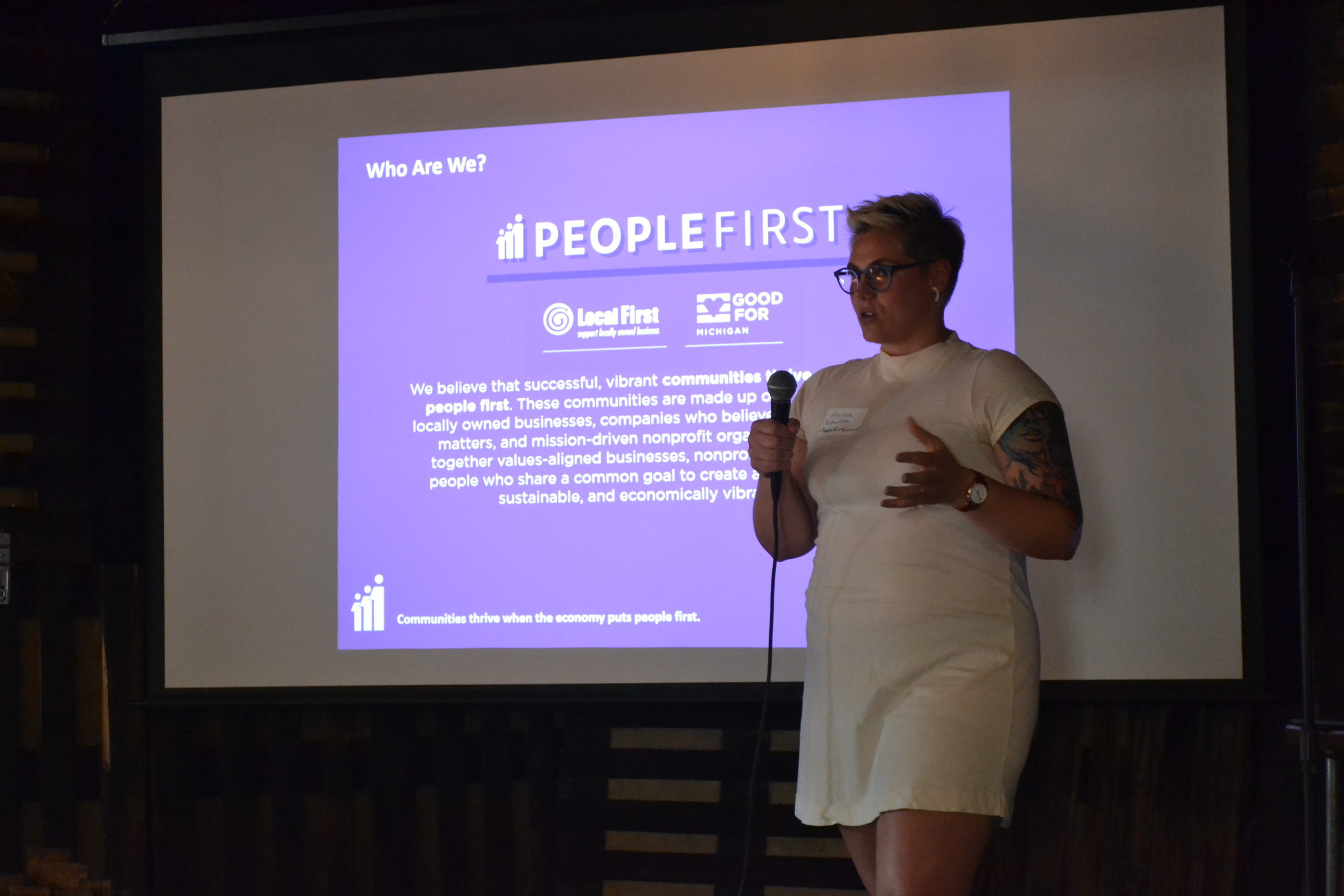 One next step they’ve identified is a survey of stakeholders to better understand their highest priorities. People First Economy, recently rebranded, focuses on clarity around how its three branches communicate, connect, and become most accessible for business owners. With people at its heartbeat, the organization is entering its next chapter and continuing to shape the local landscape.
One next step they’ve identified is a survey of stakeholders to better understand their highest priorities. People First Economy, recently rebranded, focuses on clarity around how its three branches communicate, connect, and become most accessible for business owners. With people at its heartbeat, the organization is entering its next chapter and continuing to shape the local landscape.
Our “Hello! We Are AMIBA” series gathers stories, best practices, strengths, challenges, and equity initiatives from AMIBA Members and Partners. As an alliance, we are AMIBA! Learn more about the American Independent Business Alliance.
